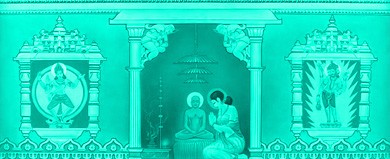
Bhagwan Mahavir was once giving his discourses in Champanagari and he saw Ambad parivrajak (wandering monk) proceeding towards Rajgruhi. He stopped him and said, “On reaching Rajgruhi, tell Shravika Sulsa that Mahavir has wished her dharmalabh” (increase in righteousness). Continue reading “Sulsa” »
Sulsa
Shri Hemchandracharya
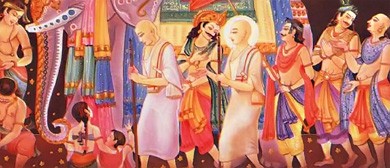
Kalikalsarvagna Hemchandracharya made extraordinary contribution for a long spell of seven decades to varied fields like poetry and grammar, history and puran, yoga and spiritual knowledge, lexicon and poetics, renunciation and penance, self-restraint and self-discipline and the state welfare and popular welfare. During the last 1000 years, there is no other personality that can match his saintliness and literary output. Continue reading “Shri Hemchandracharya” »
Natural religion of the soul – Samyaktva
Sorry, this entry is only available in हिंदी.
Uneducated women can never win a husband’s heart
Sorry, this entry is only available in हिंदी.
Maharaj Kumarpal
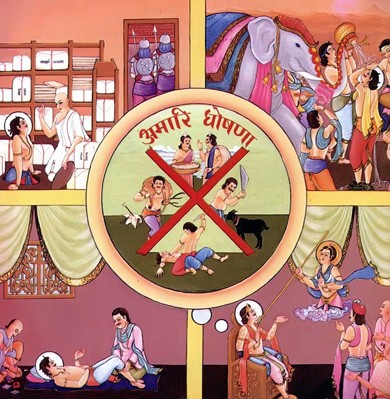
The life of Rajarshi (king with the attributes of a sage) Kumarpal symbolising bravery, justice and compassion and it is a glorious chapter in the saga of Jainism. Kumarpal, an apostle of non-violence, was a powerful monarch. As a man of exceptional talents, he had carved out a niche for himself not only in the history of Gujarat but of India and his life was full of some extraordinary events. Continue reading “Maharaj Kumarpal” »
Shri Haribhadrasuri
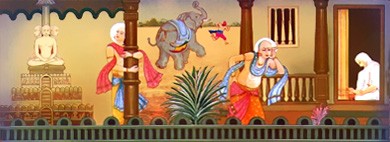
Acharya Haribhadrasuri, a great author with powerful personality, had written many books in Sanskrit and Prakrit. His versatile scholarship, unmatched knowledge, acute critical faculty and mastery of language have earned for him a distinguished place in the history of Indian literature. The 1444 books deemed to have been written by him are regarded as the most valuable treasure of knowledge of the Jain religion. He was the first commentator of the Agamas (Jain canonical literature) and through his books he blazed a new trail in meditation. Continue reading “Shri Haribhadrasuri” »
Shri Anathi Muni
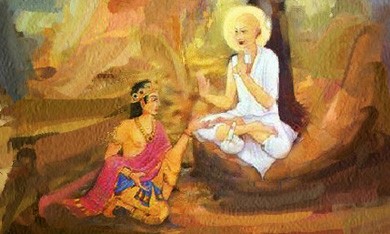
Magadh King Shrenik Bimbisar set out for forest-outing riding a horse. As he entered Mandikuli garden, he saw a saintly person in meditation under a tree. He was surprised at the sight of such a pleasant face with glowing forehead and was impressed by the monk. The king wondered as to what heart-rending and shocking experiences of worldly life might have led him to forsake joys and pleasures of youthful life and resort to a saintly way of life dedicated to penance. Continue reading “Shri Anathi Muni” »
Sadhvi Yakini Mahattara
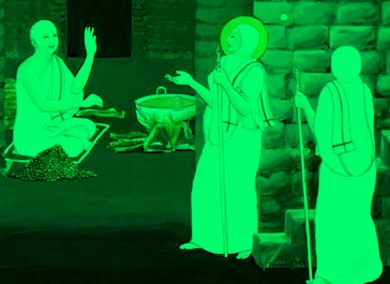
Two disciples of Acharya Haribhadrasuriji, namely Hans and Paramhans were killed at the hands of followers of other religion. Acharyashri suffered great mental commotion. The shock of the killing of his loving disciples caused a sense of revenge in him. Acharyashri decided to kill 1444 students and lecturers of Bauddha Vihar by roasting them alive in boiling oil. Anger and revenge leave no place for discretion. Continue reading “Sadhvi Yakini Mahattara” »









